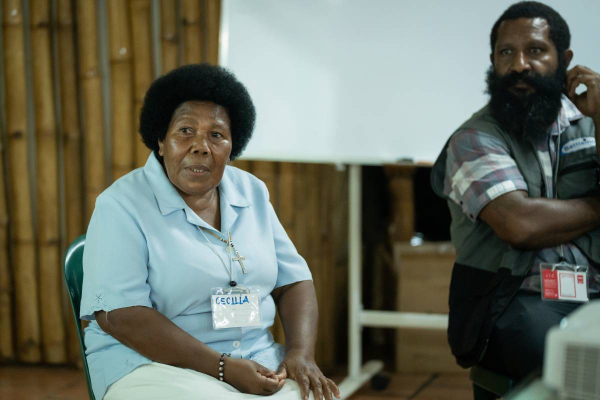Treasures in the Dark: Empty Hands
How to praise God in the empty places

The day we laid my mom’s ashes in the dirt, I felt emptier than I ever had before. My youngest was barely crawling, and it just wasn’t time for her to leave us. Not now. Not yet. We just weren’t ready for this goodbye.
In the aching weeks that followed her funeral, I found myself drawn over and over again to the biblical story of Job — especially to one statement that stole my breath every time I read it. A man who lost all his possessions and children in a single day spoke these words:
Praise the name of the Lord?!
It’s easier to praise God when life is going the way we think it should. However, when the script we think we’ve written changes without our permission, suddenly we can feel left in the dark. The suggestion that we praise God in those moments can feel like sandpaper against our tender souls.
By the end of the first chapter of his story, Job had nothing left — no children to carry on his name, no livestock or livelihood, and no real hope for a future. Job didn’t pretend that he was okay with any of this.
He tore his clothing, shaved his head and laid on the ground, howling his pain (1:20). He was angry, confused, depressed and obsessed with the thought of death (3:3-4). There was nothing pretty about Job’s grief.
Yet, he came to God with it anyway. He came with his rage, questions and desire for the grave. He came with his utterly empty hands.

Nothing to Hide
Job understood something profound: The purest form of worship comes from a place of complete vulnerability and surrender. When we have nothing to offer and nothing to hide our hearts behind, there is nothing standing between our Creator and us.
In this place, our spirits grow quiet and small and we’re able to let ourselves be held by God without feeling the need to perform for him. We don’t come to him with an offering of our accomplishments or obedience; we come with open hands.
Here we are humbled as God’s beloved children.
Another character in the Bible, David, was also well acquainted with suffering. This broken, flawed warrior king and passionate poet knew the place of emptiness well. He actually craved it in Psalm 131:1-2 (NLT), writing:
Dark seasons will happen for us. There will be times we wrestle and ache — when pain shadows everything we see, think and do. Maybe you’re in a season like that right now.
But there are also treasures in the dark places — treasures we would never uncover or recognize in the blinding swirl of regular days or joyful seasons.
For me, the empty time after my mom’s death opened the door to many humbling opportunities to walk with others in their own grief journeys. But more than anything, my emptiness was filled to overflowing with a sense of God’s sweet presence. It wasn’t until I had open hands that I finally realized this incredible truth: Only when we have nothing left to bring God can we fully bring him ourselves — and move into a future that he already holds.
Dig for Treasure
Be encouraged by what Scripture says about finding treasure in dark, difficult and empty seasons! Check out the following passages:
- Psalm 36:5-9 — God is our shelter and source of unfailing love.
- Psalm 139:3-12 — God sees us and knows us.
- Matthew 5:1-6 — God will bless us, not just in good times but in tough seasons.
Learn about topics like Bible translation, mental health, literacy, sign languages and more at our free, one-hour online event called Explore Wycliffe Live.






